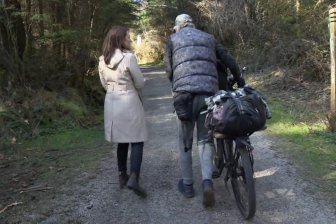Toronto City Council voted against the defunding the police budget, however, did approve numerous reforms on the service on Monday.

Mayor John Tory put forward a motion proposing a suite of changes to policing that also included anti-racism measures and the implementation of body-worn cameras. The motion passed, along with a number of amendments voted on by council.
In a series of votes at a meeting on Monday, councillors voted in favour of the mayor’s motion.
Two councillors had put forward a motion to cut the police budget by 10 per cent – about $107 million – and use that money for community services.
Council heard a cut of $107 million would mean the loss of about 1,000 sworn officers that could take years to implement due to collective bargaining agreements with the union.

But council decided to take a more incremental approach to police reform.
“We’ve put forward something that has been amended and improved and isn’t meant to be the ultimate answer, but a comprehensive series of reforms that set in motion a process that should bring about the kind of change at the pace of change that is needed in response to the people that have marched in the street and that have been touch with our offices and so on,” Tory said.
READ MORE: 2 Toronto councillors put forward motion to defund police budget by 10%
Calls to defund police have grown around the world in the wake of the police killing of George Floyd, a Black man from Minneapolis.
They also come about a month after the death in Toronto of 29-year-old Regis Korchinski-Paquet, a Black woman who fell from her balcony while police were in her home.
Thousands of protesters have taken to Toronto’s streets over the last month demanding change to policing in the city.
Among other measures, the mayor is seeking the “creation of non-police led response to calls which do not involve weapons or violence, such as those involving individuals experiencing mental health crises and where a police response is not necessary.”
Police Chief Mark Saunders said he does not support arbitrary cuts to the force’s budget, but does support overhauling how the force deals with those in crisis.
Saunders cautioned that there is currently no alternative system in place for handling mental health-related calls and says there must be a new plan in place before any reforms take effect.
“I embrace that idea, where someone creates something where we don’t go at all, that’s a great day for all of us,” Saunders said at a virtual city council meeting that is debating police reform.
The mayor is also seeking the cost savings to the police budget that change would make.
His motion also wants a line-by-line police budget breakdown, an auditor general review of the budget to identify cost savings and investment in community services.
- Ontario hospital workers awarded 6% pay increase, new agreement on agency nurses
- S&P/TSX composite closes up nearly 100 points, U.S. stock markets mixed
- Five-vehicle crash sends 5 people to hospital Saturday morning: Toronto police
- ‘Cowardly option’: Family of woman killed in Toronto hit-and-run want lengthy sentence
The city is also looking for strategies to address anti-Black and anti-Indigenous racism.
And it’s looking to equip all officers with body-worn cameras by Jan. 1, 2021, which Saunders said would cost about $5 million per year.
As part of overhauling the response to mental health calls, Tory’s motion seeks to have police notify crisis units for every call for someone experiencing a crisis.
READ MORE: What it’s like to police in marginalized communities amid George Floyd protests
There are currently eight mobile crisis intervention teams that involve a police officer and nurse trained in dealing with those in the throes of a mental health crisis, Saunders said. They do not operate 24 hours per day.
Police respond to more than 30,000 mental health calls per year, or about 82 calls per day. The teams are not primary responders they are dispatched once patrol officers have arrived and evaluated the situation.
Saunders said mental health calls are complex.
“We’re talking about calls where machetes are involved, axes are involved and whenever we do have these calls, it’s mandatory two officers respond,” he said.
“I’d rather have the sit-down and all educate ourselves a little more on what we do and what the public wants done.”
Saunders is set to retire at the end of July and the mayor is also calling for a broad consultation with the public to find his successor.







Comments